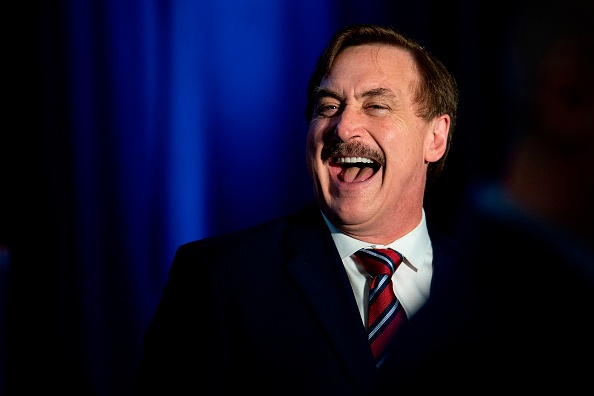Given Mike “MyPillow” Lindell’s history of claims about the 2020 election, it’s a fair question whether turning his legal filings over to generative AI might actually reduce the hallucinatory nonsense.
Alas, the court did not engage in that comparative analysis and slapped Rule 11 fines on two of the pillow purveyor’s lawyers — Christopher Kachouroff and Jennifer DeMaster — over a series of fake cites and quotes in Lindell’s filings. Specifically, Judge Nina Wang’s order noted that the issue arose after argued a motion in limine and asked if there was anything else the judge wanted him to address. At that point Judge Wang discussed:
[M]isquotes of cited cases; misrepresentations of principles of law associated with cited cases, including discussions of legal principles that simply do not appear within such decisions; misstatements regarding whether case law originated from a binding authority such as the United States Court of Appeals for the Tenth Circuit; misattributions of case law to this District; and most egregiously, citation of cases that do not exist.
That may sound bad, but then you notice the order reads “The discussed errors included but were not limited to.” (emphasis added).
The mistakes, of course, originated with generative AI, but it’s still not fair to blame the technology. Westlaw isn’t responsible if your bad search brought up a case that doesn’t fit. The problem is, and always has been, lawyers who treat “verify your work” as a suggestion instead of a professional obligation.
Maybe Lindell saw the bill and thought it read “verify your WOKE” and refused to pay?
On the subject of Westlaw being responsible for errors, the lawyers defended themselves by pointing to a “Westlaw Report” that analyzed the brief and suggested better cases. According to contemporaneous email correspondence, DeMaster told Kachouroff that the report “didn’t flag us for any obviously bad case law.” They then claim that the Westlaw Report allowed them to fix the final version but that they then accidentally filed an earlier broken version. The judge didn’t see it that way, noting that the version referred to in the Westlaw Report email seems to have the same mistakes as the filed version. “Put simply, neither defense counsel’s communications nor the ‘final’ version of the Opposition that they reviewed corroborate the existence of the ‘correct’ version.”
But either way, the defense seems to be “we used a different tech tool to do the cite checking for us,” which is still not really the same as CITE CHECKING.
The judge fined each $3000. Lindell’s attorneys should be ecstatic they’re getting off this easy.
In 2023’s legal ChatPocalypse Mata v. Avianca, a hapless New York lawyer who took ChatGPT’s word for it that all those suspiciously perfectly tailored precedents were real and not AI shamelessly sucking up to him like the AI from Her. While ruthless professional mockery took its toll, the court cut that guy some slack for being the first unlucky sod to fall for generative AI. It was a teachable moment and a $5,000 slap on the wrist seemed fine.
But we’ve had that moment. This is a sequel — and everyone knows sequels have a higher body count.
Actually, this is the sequel of a sequel of a sequel in a case with substantial public notoriety because the litigant is a Pillow Pitching loon. In light of Avianca, lawyers making this mistake today are clearly dissuaded by the possibility of a $5000 sanction much less a $3000 one. We recently saw a $31,000 sanction for a generative AI error. That’s far more in line with where we are right now. Without higher stakes for lawyers making this mistake — one that everyone has full and fair warning about — there’s no incentive for lawyers to get it right.
Indeed, $3000 is chump change if turning a blind eye to the AI-juiced brief convinces a judge to side with the client. As much as we all rely on judges to act as an impermeable firewall for fakery, a judge just fell for AI cases in Georgia.
And so, for their sins, Lindell’s lawyers must take their lumps and pay up by August 4. Just don’t use words like “lumps” when talking about Lindell’s pillows.
(Check out the order on the next page…)
Joe Patrice is a senior editor at Above the Law and co-host of Thinking Like A Lawyer. Feel free to email any tips, questions, or comments. Follow him on Twitter or Bluesky if you’re interested in law, politics, and a healthy dose of college sports news. Joe also serves as a Managing Director at RPN Executive Search.
The post Mike Lindell Lawyers Earn Pillow-Soft Sanction After Letting AI Do The Thinking appeared first on Above the Law.

